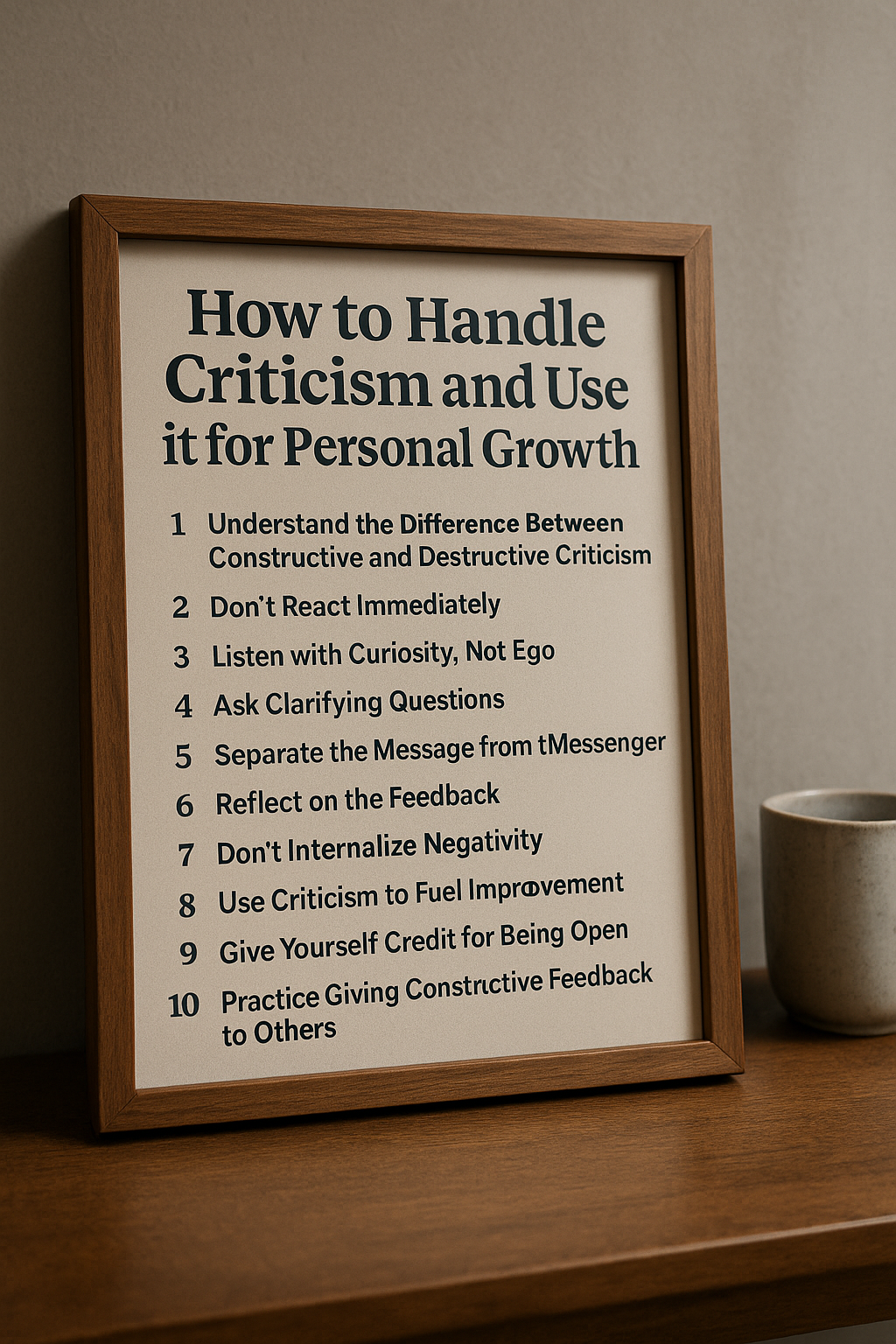Receiving criticism is never easy. It can stir up feelings of insecurity, defensiveness, or even shame. But when handled with the right mindset, criticism becomes one of the most powerful tools for personal development. In this article, we’ll explore how to deal with criticism effectively and turn it into a stepping stone for growth instead of a source of frustration.
1. Understand the Difference Between Constructive and Destructive Criticism
Not all criticism is created equal.
- Constructive criticism is specific, actionable, and intended to help you improve.
- Destructive criticism is vague, hurtful, or aimed at tearing you down rather than building you up.
Learning to tell the difference allows you to respond wisely and avoid unnecessary emotional damage.
2. Don’t React Immediately
When you hear criticism, your first instinct may be to defend yourself or shut down. Instead, take a breath. Allow yourself a few seconds (or minutes, if needed) before responding. This pause gives you time to calm your emotions and respond thoughtfully.
3. Listen with Curiosity, Not Ego
Approach criticism with a curious mindset:
- What can I learn from this?
- Is there a kernel of truth here?
Even when poorly delivered, criticism may still offer insight. Let go of the need to be right and focus on growth.
4. Ask Clarifying Questions
If feedback is unclear, ask for specifics:
- “Can you give an example of what you mean?”
- “How do you think I could approach this differently?”
This shows maturity and a willingness to learn, while also helping you understand what the other person truly means.
5. Separate the Message from the Messenger
Sometimes criticism comes from people you don’t like—or who don’t like you. That doesn’t automatically make the feedback worthless. Evaluate the content independently of the source. Ask: “Would this feedback still be valuable if someone else had said it?”
6. Reflect on the Feedback
After the conversation, take time to process. Ask yourself:
- Is this feedback aligned with other patterns I’ve noticed?
- How can I apply this going forward?
Use your journal or notes app to write down takeaways and action steps.
7. Don’t Internalize Negativity
Destructive criticism often says more about the speaker than about you. If someone’s words are cruel, personal, or unhelpful, it’s okay to let them go. You are not obligated to accept every opinion.
8. Use Criticism to Fuel Improvement
Every time you apply constructive feedback, you grow stronger and more competent. Even if it’s uncomfortable, the ability to receive feedback well is a trait of successful, self-aware individuals.
9. Give Yourself Credit for Being Open
Most people avoid criticism. If you’re reading this and committed to learning from it, give yourself credit. You’re choosing growth over ego—which is not only brave but also rare.
10. Practice Giving Constructive Feedback to Others
The best way to appreciate good criticism is to give it. Learn how to offer feedback that’s kind, specific, and helpful. This helps you stay grounded in empathy when you’re on the receiving end.
Criticism Is a Tool, Not an Attack
Criticism can sting—but when you approach it with openness and self-reflection, it becomes a powerful catalyst for change. Instead of letting it derail your confidence, use it to build resilience, awareness, and skill. You don’t have to be perfect—just willing to grow.

